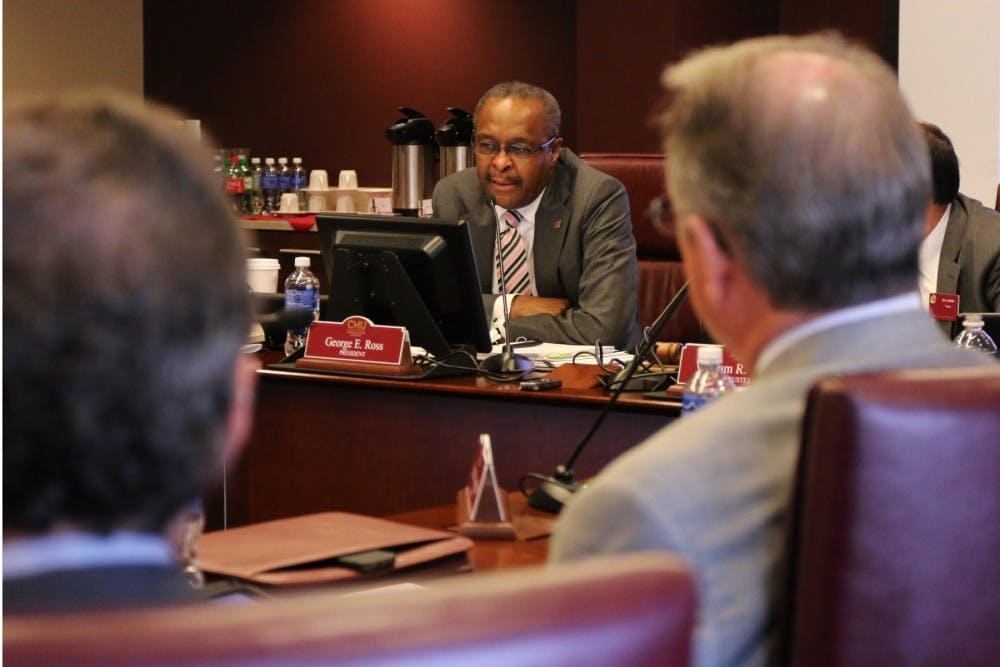EDITORIAL: President's salary increase highlights ballooning business of higher education

President George Ross speaks to the Central Michigan University Board of Trustees April 30 in the President's Conference Room.
At the last Board of Trustees meeting of 2015, President George Ross received a $20,000 raise.
Questioning a raise is understandable. $20,000 nearly pays for a year of in-state tuition, fees as well as room and board at this school.
This increases his annual salary to $450,000 per year. Last year Ross received a $30,000 increase following his interest in the presidency at the University of Nebraska at the end of 2014. Keep in mind Ross is scheduled to receive an additional $30,000 retention payment in June, so long as he does not look for another job.
We believe Ross deserves the raise, but we remind trustees the decision highlights a frightening narrative happening in higher education.
The board claims the increase is necessary to stay competitive with other universities. It’s no secret. An arms race is underway, driving up salaries at public universities.
We are the ones paying for it.
State higher education funding has been partially restored since a 15 percent cut five years ago. However, there remains a $400 million difference between what the state dedicated to Michigan’s universities in 2001 and today.
Students tuition is making up the difference.
At CMU, millions of dollars are given each year to auxiliary arms such as the Athletics Department and Charles V. Park Library.
It feels like there is an overarching assumption that the more expensive an executive is, the better he or she is at his or her job. We do not believe that to be true.
Ross has mainly done a good job, which is reflected in his performance review.
He received an overall grade of 8.2 out of 10 from the people he works most closely with. To put this figure in perspective, Ross essentially earned a B- and received his $20,000 increase.
It begs the question: What would they have given him for an 'A'?
A committee of 79 stakeholders participated in the assessment process. The group found his biggest strengths to be in financial stability and direction. The report said Ross “clearly defines CMU’s cultures, values and ethical standards.”
His biggest shortcomings are how Ross struggles to be adaptable and versatile. The report suggested Ross “need(s) to become more proactive in the anticipating and responding to customer and external requirements and expectations.”
The report also suggests he must do a better job at “communicating and engaging vision of the future.”
The feedback came weeks after Ross declined to offer a State of the University address this fall.
It is obvious the board likes and respects Ross.
They say Ross must be paid what the market demands. The trouble with markets that are inflating is that they often crash.
University spending and the annual increase in tuition makes a tipping point feel closer than ever.
What will happen to CMU and every other public university when that crash happens and students are priced out of the market?
The board should consider that as they prepare to announce CMU’s next tuition increase this spring.






